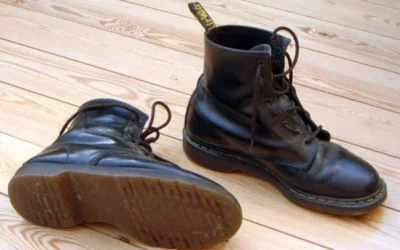In last Sunday’s “Social Q’s” column in The New York Times, Jennifer from Waccabuc, N.Y., described a man correcting her son for not saying “you’re welcome” after the man had thanked him for holding a door. Her question: Is it rude not to say “you’re welcome”? In response, Philip Galanes noted that “you’re welcome” nicely completes the “arc of politeness,” but that no one should correct and thereby embarrass another person—let alone one who happens to be an adolescent—who has just done a polite deed.
Now, what if the young man had said, “no problem”? Would the adult walking through that open door have corrected him for being rude?
When people tell me about their gripes about the English language (which happens with great regularity—it comes with my profession), they often bring up young people accepting thanks by saying “no problem.” Henry Alford, a contributor to The New Yorker, described the response as “almost hostile” in a 2012 interview about etiquette. He went on to say: “I think that unless an actual problem has been averted, the use of the expression is falsely heroic. It traffics in implied martyrdom.”
I would like to use this post to defend “no problem” as a form of polite interchange.
Let’s start with the fact that routinized conventions of politeness are just that: routinized. In response to the greeting “How are you?,” we routinely say “fine” or “good” if we’re aiming simply to get the conversation started (as opposed to delving further into our state of health and well-being). To be polite about a request, we often say “please” or use indirect language like “Could you …?” or “Would you …?” This is conventionalized language that we learn as we are growing up, often through direct instruction from adults (e.g., “What’s the magic word?”).
When someone says “thank you,” most of us have been taught to respond (hence the interaction gone wrong that led to the letter to the New York Times), and many of us do so with “you’re welcome.” The phrase has become so conventionalized that it may come as a surprise to learn how relatively recent it is. The Oxford English Dictionary has one marginal citation in 1907 (phrased as “you’re quite welcome”) and dates the appearance of the fixed phrase to 1960. In other words, “you’re welcome” hasn’t always been the one and only way to respond to an expression of gratitude—and it’s evident that conventions involving this social act continue to shift.
The expression of thanks is notably complex on the interpersonal level. When people say “thank you,” they shift some of the power to the person they’re thanking. They are acknowledging a debt of some kind, even if a small one. As the recipient, we may then feel the need to try to minimize the debt. While “you’re welcome” can do some of that work, it can also suggest that there really was a debt to be acknowledged. “You’re welcome” may seem to say: “I was happy to do it—but I do recognize, as do you, that I went out of my way.”
“No problem,” however, can more successfully minimize the sense of debt. With it, we suggest that we were both happy to do whatever it was and didn’t feel we had to go out of our way to do it.
In the online comments on the interview with Henry Alford, one reader expressed annoyance at people who say “no problem” in response to being thanked for doing their jobs. Alford raised this point as well with the example of a waiter offering him more water, being told “no, thanks,” and responding “no problem.” I understand the issue: The server could be heard to be suggesting that offering the water was somehow going out of his way. Another online commenter astutely remarked, though, that perhaps the problem was not with the server but with the overabundance of thanks in some social interchanges. What else was the server to say in response? By saying “no problem,” the commenter wrote, the server may have been implying that there was no need for thanks—it is all part of the job.
Here’s another way to think about this shift in conventions: We probably don’t need to overanalyze the implications of “no problem” situation by situation. It has become part of the repertoire of politeness conventions. It is conventionalized for many younger speakers as well as for some of us in middle age (I say as an occasional “no problem” responder myself). We no longer think about “you’re welcome” as being related to a cordial invitation; it’s just what we’ve come to say over the past 50-plus years to be polite. Now, to be polite, some folks are saying “no problem”—and it doesn’t have to imply that there was a problem in the first place. It’s a change in wording, I think, not a change in standards of politeness. Each of us is welcome to choose a preferred polite expression, but we should be open to changing expressions of politeness designed to express much the same thing—and arguably, in some instances, in even more gracious ways.
This blog was originally posted on The Chronicle




